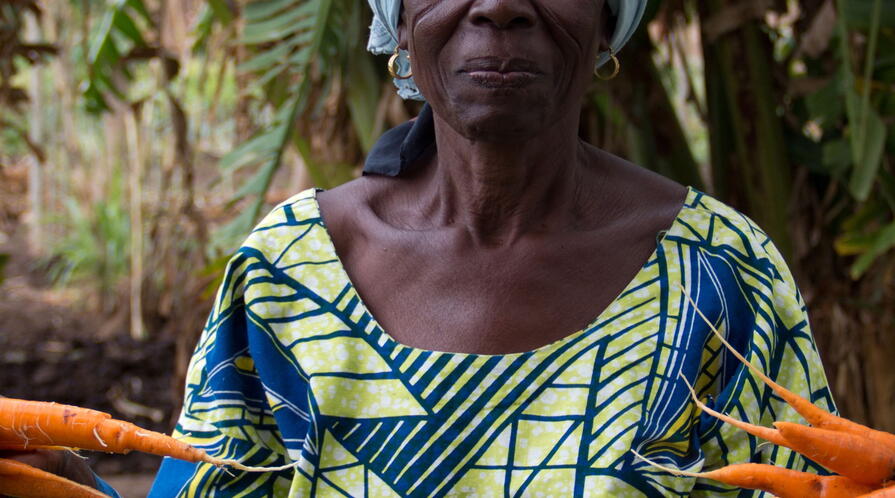Social Justice and Environmental Activist Kumi Naidoo Named Payne Distinguished Lecturer
The Freeman Spogli Institute for International Studies (FSI) is pleased to welcome Kumi Naidoo as the next Frank E. and Arthur W. Payne Distinguished Lecturer. Effective November 7, 2023, Naidoo will be based at FSI’s Center on Democracy, Development and the Rule of Law (CDDRL), with a simultaneous affiliation at the Center for Food Security and the Environment (FSE).
The Payne Lectureship at FSI aims to raise public understanding of the complex policy issues facing the global community and advance international cooperation.
Naidoo has a distinguished career as an activist, including in South Africa, where he was an organizer of anti-apartheid activities. He was forced into exile in the United Kingdom under pressure from the pro-apartheid South African Security Police, but returned in 1990 following Nelson Mandela’s release from prison, whereupon he organized for the legalization of the African National Congress.
Naidoo turned his activism to the issues of climate change in 2009, when he joined Greenpeace International, serving as the executive director until 2015. In 2010, he released his first book, “Boiling Point: Can Citizen Action Save the World?”, in which he urges unity and cooperation in facing the urgency of the climate crisis. He has also served as the secretary general of Amnesty International and other global human rights organizations.
"FSI is lucky to be able to bring leaders like Dr. Naidoo to Stanford to help our community think about global challenges like climate change and development from new perspectives. With all of his experience as a frontline activist, Kumi is going to be a wonderful resource to our students and scholars,” says Michael McFaul, director of the Freeman Spogli Institute.
As the Payne Distinguished Lecturer, Naidoo will have the opportunity to teach a seminar to the Ford Dorsey Master’s in International Policy, mentor undergraduate and graduate students across FSI’s centers, and present the annual Payne Lecture in the winter of 2024. Naidoo’s multi-disciplinary expertise at the crossroads of social justice and environmental advocacy will bring welcome perspectives to the intellectual communities at CDDRL, FSE, and FSI, and across Stanford’s campus to places like the new Stanford Doerr School of Sustainability.
“At a time when we are seeing a convergence of multiple crises in the world and some troubling trends, including the rise of fascism, continuing climate denialism, a challenge to the multilateral system and more, I am pleased to have this opportunity to engage in reflective work on the question of ‘How can activism win bigger and faster?’” says Naidoo.
He continues, “One of the key reasons we are not getting as much urgency and momentum to act on climate and intersecting challenges is the communications deficits activism comes up against: at an objective level, we face a challenging ownership structure of mainstream media which leaves little place for narratives and perspectives pushing for substantive structural and systemic change.”
“We are delighted to welcome Dr. Naidoo as this year’s Payne Lecturer,” shared Kathryn Stoner, Mosbacher Director of CDDRL. “With his remarkable background as a human rights activist and a global leader in environmental and social justice, Kumi brings a wealth of knowledge and insight that will undoubtedly spark meaningful conversations and inspire our students, faculty, and the greater Stanford community."
Previous Payne Distinguished Lecturers include Rose Gottemoeller, former deputy secretary of NATO; Ertharin Cousin, former U.S. Ambassador to the UN Agencies for Food and Agriculture; Brett McGurk, former presidential envoy to defeat ISIS; and Jung-Seung Shin, former Ambassador for the Republic of Korea, among others.
The Payne Lectureship is named for Frank E. Payne and Arthur W. Payne, brothers who gained an appreciation for global problems through their international business operations. The Payne Distinguished Lecturer is chosen for his or her international reputation as a leader, with an emphasis on visionary thinking; a broad, practical grasp of a given field; and the capacity to clearly articulate an important perspective on the global community and its challenges.
Speaking to his upcoming time at Stanford, Kumi Naidoo outlined some of his goals for his research and lectureship while at FSI.
“At a subjective level, change agents tend to try to move people primarily by facts, figures, policy and rational arguments. This approach has tended to ignore the need to reach people in their hearts, body and soul. I look forward to continuing to work on one of the solutions I have been pursuing which is the need to harness the power of arts and culture, what increasingly is referred to as Artivism. I am hoping to use my time at Stanford University to interrogate these issues and share through my writing and podcast (Power, People and Planet) some of the perspectives that challenge the way that conventional activism has tried to foster structural and systemic change.”
Read More

Naidoo brings a multi-disciplinary perspective from his experiences as a leader at Greenpeace International, Amnesty International, and other causes to the students and scholars at FSI and beyond.










